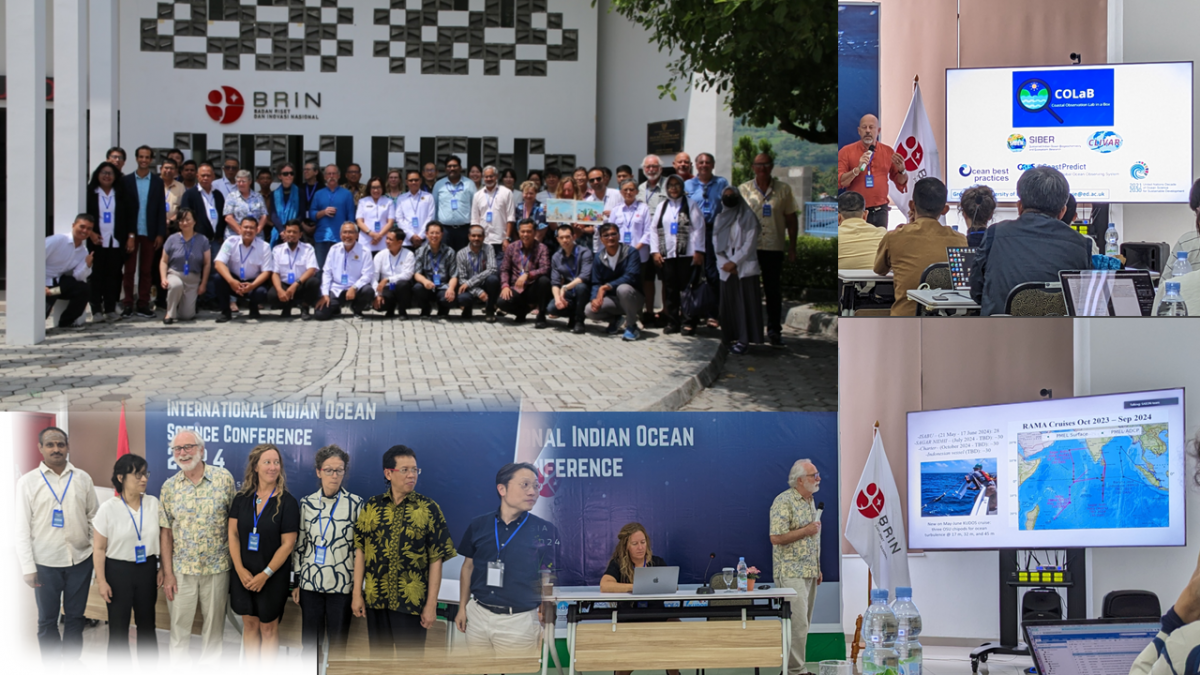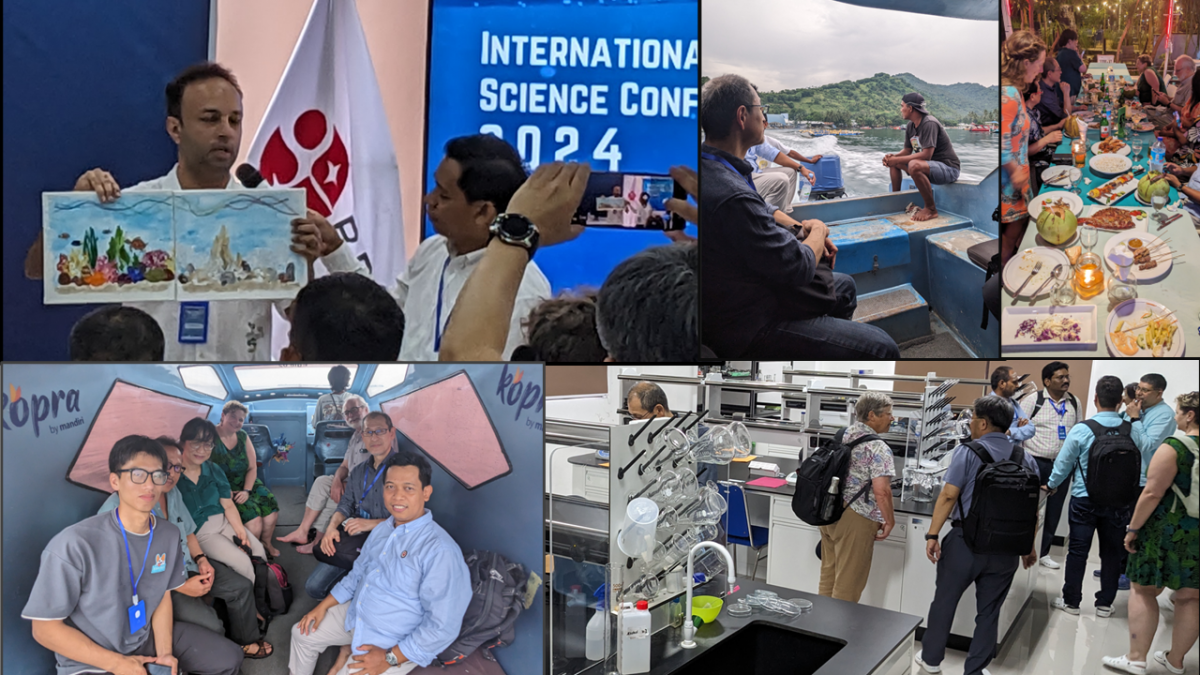Highlights from the International Indian Ocean Science Conference (IIOSC) 2024
Highlights from the International Indian Ocean Science Conference (IIOSC) 2024, March 4-8, 2024, Lombok, Indonesia
This year’s International Indian Ocean Science Conference (IIOSC) marked a significant milestone. The event hosted the 20th Session of the CLIVAR/IOC-GOOS Indian Ocean Region Panel (IORP) and annual meetings for several key groups, including the IIOE-2 Steering Committee, IOGOOS, IOCINDIO, IRF, SIBER, and KUDOS. These integrated sessions were pivotal in reviewing scientific advancements and strategizing for the UN Decade of Ocean Science for Sustainable Development (2021-2030).
The symposium was held at the Kawasan Sains Kurnaen Sumadiharga, part of the National Research and Innovation Agency (BRIN). This integrated format allowed for collaboration among various organizations, including the Second International Indian Ocean Expedition (IIOE-2), the International Oceanographic Commission (IOC), the Indian Ocean Global Ocean Observing System (IOGOOS), the Indian Ocean Region Panel (IORP), the Indian Ocean Observing System Resources Forum (IRF), the Sustained Indian Ocean Biogeochemistry and Ecosystem Research (SIBER), and the IOC Sub-commission for the Central Indian Ocean (IOCINDIO).

Every year, these gatherings aim to share research insights and plan future initiatives, particularly around the IIOE-2. Launched in 2015, this global scientific program focuses on collaborative oceanographic and atmospheric research in the Indian Ocean. Initially planned for 2015-2020, the program was extended to 2025, and discussions at IIOSC 2024 centered on extending it further to 2030.
Following the November 2023 meeting in Hyderabad, plans were made to extend IIOE-2 through to 2030. The plenary presentation on this topic highlighted the need to address key scientific gaps and emphasize the societal impacts of our work. Additionally, COLaB – Coastal Observation Lab in a Box – is set to be a major focus for IIOE-2 from 2025-2030, providing critical coastal observations.
Among the various items discussed was a Task Team established by the IORP to explore ocean simulation experiments to investigate the impact of observational disruption during the global pandemic. Continued efforts to monitor the Indian Ocean Observing System (IndOOS) were also emphasized. Leadership and future meetings were another focal point, with IRF seeking a new chair and INCOIS offering secretariat support. An IOCINDIO meeting is scheduled for the end of May.
In-person meetings allowed for dynamic and productive discussions, strengthening collaborations. The visit to the BRIN institute provided insights into their infrastructure, aiding future research plans for the Indo-Pacific. Snorkelling with marine biologists offered a unique opportunity to experience the region's marine biodiversity firsthand.

The IIOSC 2024 was a tremendous success, setting the stage for future advancements in Indian Ocean research. The collaborative efforts initiated here will play a crucial role in enhancing our understanding and sustainable management of this vital region.
Juliet Hermes
Co-Chair, CLIVAR/IOC-GOOS Indian Ocean Region Panel











Add new comment